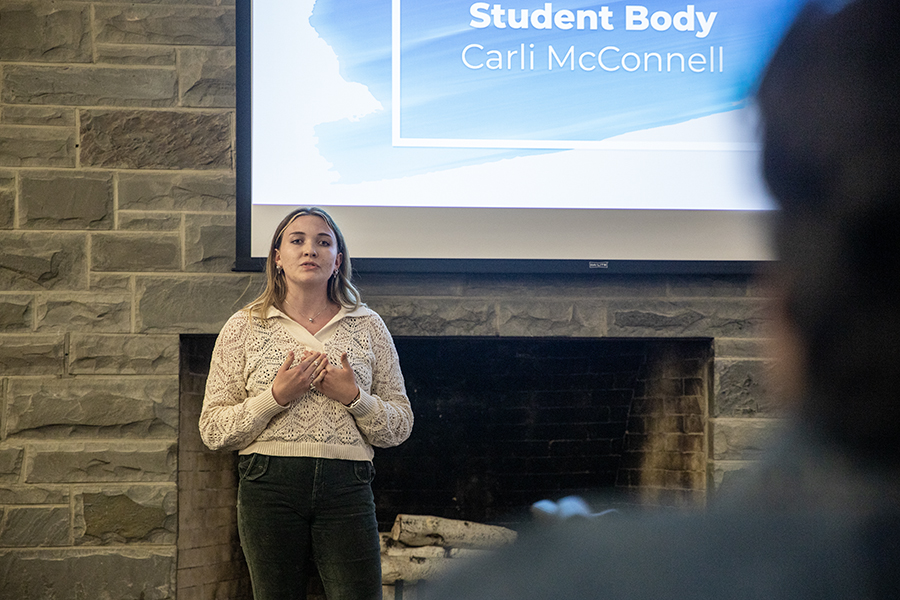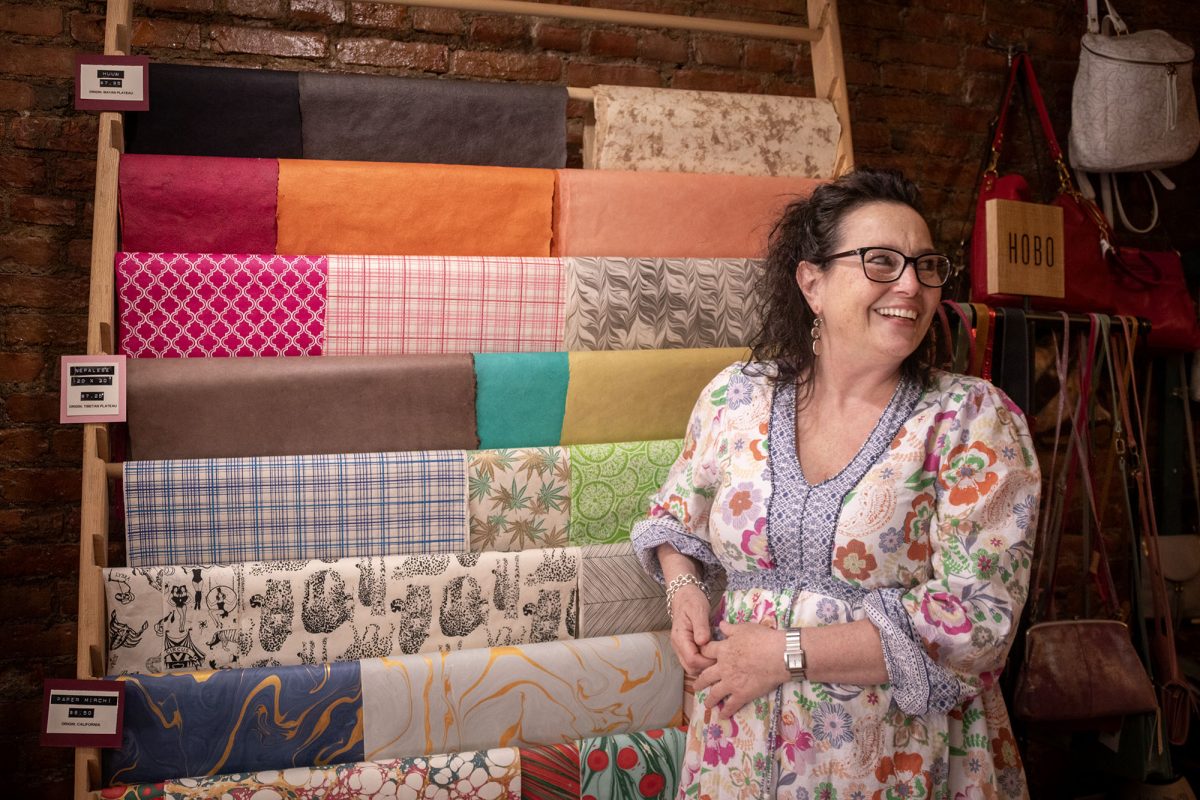Senior Carli McConnell was elected president of the Ithaca College Student Governance Council (SGC) for the 2023–2024 academic year April 25. The election was subject to controversy, as election results were initially withheld from publication after the candidate who received the most votes was disqualified.
Since then, McConnell has spent the summer preparing for her role as president of SGC. McConnell is now working to make her campaign platform objectives a reality. These objectives include increasing sustainability and making the council more visible and understandable to students.
Staff Writer Dominick Petrucci sat down with McConnell to discuss her goals for SGC’s first meeting of this semester and the experience of taking office.
This interview has been edited for length and clarity.
Dominick Petrucci: What was your main platform when running for SGC?
Carli McConnell: The main thing I was running on was more sustainability and intersectionality within the campus. I am an environmental studies major and a legal studies major, so those are pretty much what my entire life is consumed by, and I wanted to work more with students and various offices across campus and figure out how we can incorporate that more into the student experience here at Ithaca. Another thing I was really interested in … [is] having SGC be more engaged and be more present and active in students’ lives. I don’t know if that’s been a common downfall in the past years or just more bouncing back from COVID-19. Across campus, engagement has been down, so trying to build that back up and build up students’ interest and engagement with SGC and other organizations in general.
DP: Have you taken any initiatives over the summer toward those goals?
CM: It was very busy for a lot of the e-board members this summer. We were lucky to have a big meeting once; we’ve been discussing over Teams and texting, sharing initiatives, ideas and goals, so we can get the ball rolling so that when everyone is back here and on campus, we can get down to the real gritty of actually writing bills and having them be passed by the Senate. We have spoken about our initiatives to make sure we are all on the same page. I have especially been working closely with the senate chair, Eleanor Paterson, and the VP of Communications, Caleb [Cackowski], to try to immediately market to the incoming class of our open positions and try and get the word out that SGC is here and we want to help students, because that’s what we’re here for.
DP: Last year, SGC passed a limited number of bills with the purpose of making sure all bills were effective and impactful. The downside of this was some issues were not being solved quickly enough, or they were not confronted in a reasonable timeframe. Is this in consideration as president of SGC this year?
CM: As the new e-board, we all have a lot of initiatives and thoughts for bills that will be thorough and effective, so I’m hoping we can do a lot of listening to students and make sure those bills are done and done in a timely manner. I’m hopeful that our e-board and our senators may not be turning out 200 bills a semester, but I’m hoping we are going to be able to do a decent amount of thorough and effective bills that are making a change. I don’t have a specific goal in mind, but I’m hoping that we can do more, as long as they are effective and not redundant or something so incredibly small that it’s not effective. An initiative we’ve talked about more is these bills we are passing are then marketed very, very well to the student body so people know we are listening and we are making these changes — either internally in SGC or externally to the student body.
DP: What was it like to become president after the elections?
CM: It was a little unusual. It was interesting, but with everything that happened to me personally, I feel prepared better for the uncertainty of holding this position. It’s not going to be easy all the time, so on a personal level, being able to have gone through that … I was able to actually listen and say “This is what people want.” This is how we can come up with ideas to solve this to rebuild trust with the students to make sure that we can accomplish what many students want. … It wasn’t just a small voice of students. It was a big deal and people were curious about what we want to do, to be able to say that the e-board is going to take that. We want that kind of reflection. We want people to come to us and be able to share their concerns in a space so that we can say “Okay, this is what you want? We are gonna work to the best of our ability to make it work.” So yes, it was a little unusual, and I wouldn’t say bad, but it was very preparatory. I feel more prepared to enter this role so now I can handle things like that and take into account what everybody needs.
DP: There was a lot of criticism of the election process last year. Is the election process an immediate concern for the council and e-board?
CM: Yes, it is. Especially since for fall elections … pretty much our first big thing back is getting our open senate and e-board seats filled with incoming first years and anybody else across campus. So that is a thing I have discussed with that specific section of the constitution with e-board members, with our advisor, with other senators just in general. It is a little weird since it’s [the elections committee] like a committee, but there are still bills that the committee could pass. So making sure this [elections] committee — when it is formed — will have enough seats filled that we can take into account what we heard last semester, and then the opinions and thoughts and processes of our senators and e-board members beyond our co-chairs — which would be myself and Eleanor — so that we can work together to give the students what we want, come to a consensus and say, “This is what we heard last year, and this is what we’re going to do this year so that elections go smoothly.”














